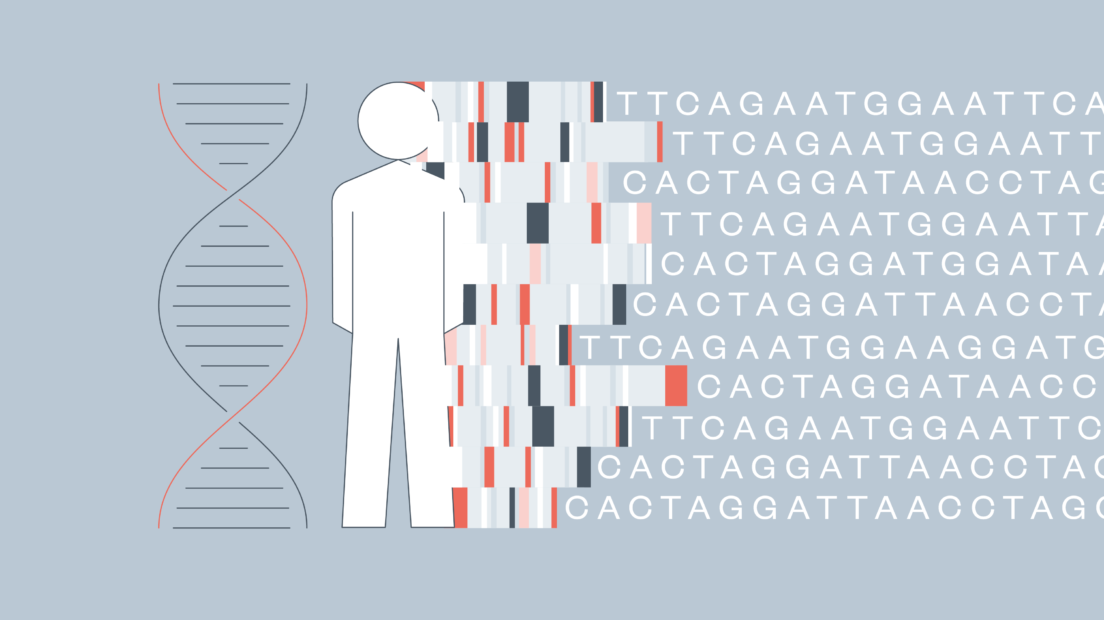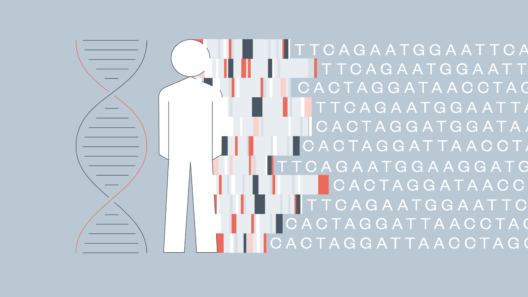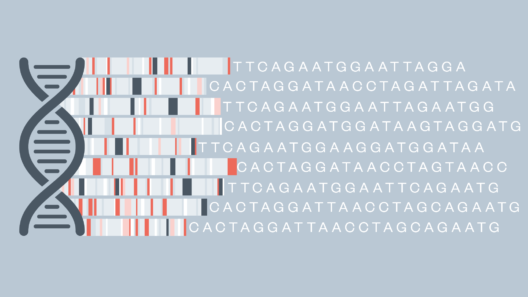AI-powered genomic health prediction should not be widely rolled out across the NHS yet, says new report
The Ada Lovelace Institute and the Nuffield Council on Bioethics (NCOB) have published a new report on AI-powered genomic health prediction (AIGHP).
Reading time: 4 minutes

The Ada Lovelace Institute and the Nuffield Council on Bioethics (NCOB) have published a report assessing the potential benefits, risks and appropriate role of AI-powered genomic health prediction (AIGHP) in the UK health system.
The report finds that while AIGHP could have some benefits within healthcare, there are significant risks concerning privacy and discrimination, as well as structural and societal problems that could emerge from its widespread roll-out for prevention at the population-level.
AIGHP refers to a set of AI-driven techniques that use genomic data and other kinds of data to enable predictions about people’s future health and drug responses. These AI systems assess multiple genetic variations in someone’s DNA to calculate whether they are more likely to develop a particular trait or disease, as compared with the rest of the population.
While not yet widely used in healthcare, AIGHP has attracted considerable investment and expectation around the world. The UK Government has published strategies that cite the potential of AIGHP to transform the NHS by offering a more preventative and personalised approach to healthcare.
The potential benefits of the technology include providing people with greater insight into their risks of developing disease, improving understanding of individual responses to treatments, informing decisions about prioritising screening and helping with resource allocation for those more likely to need particular treatments or preventive interventions. However, in this new report, the Ada Lovelace Institute and NCOB caution against a population-level roll-out of AIGHP within the NHS, and instead support a targeted approach to the use of AIGHP for cases where there is a well-defined need.
The risks and concerns highlighted in the report relate to scientific uncertainty about the effectiveness of the emerging technology, privacy risks around the use of sensitive personal data on a mass scale, new forms of genetic discrimination (particularly in the context of health insurance), structural challenges surrounding NHS adoption of new technologies and a lack of evidence on public attitudes towards use of the technology.
To help overcome these challenges, the report makes recommendations for policymakers. These include:
- Creating better data protection guidance, including a clear statement that genomic data should always be considered personal data.
- Developing a new model of consent for patients sharing their genomic data.
Convening a citizens’ assembly to explore if there is a need for new primary legislation addressing genomic discrimination in healthcare and other domains. - Passing new legislation to ensure compliance with an updated code of practice for the use of genomic data in the insurance industry (building on the Association of British Insurers’ existing code of practice).
- Not considering AIGHP for use in the NHS unless and until:
- adequate regulatory safeguards against surveillance and discrimination are introduced
- the accuracy and reliability of AIGHP systems for different demographic groups reliably reaches a defined minimum standard
- the NHS can provide suitable support for people subject to AIGHP
Harry Farmer, Senior Researcher at the Ada Lovelace Institute, said:
“There has been a lot of excitement over the past few years about the potential for genomic health prediction in healthcare – with greater efficiency, precision and personalisation held up as the prize on offer.
“Genomic health prediction could well be beneficial, but its use within the NHS will need to be approached with caution. Our research suggests that current regulations urgently need to be strengthened to address substantial concerns around privacy and discrimination presented by the technology – and to build public trust.
“We also find that a mass rollout of genomic health prediction could present significant structural risks that would be difficult to address through regulation, and which could potentially outweigh the technology’s benefits. Rather than seeing it as a tool for mass disease prevention, policymakers should focus on enabling targeted deployments of genomic health prediction, within a stronger regulatory framework.”
Professor Sarah Cunningham-Burley, Chair of the Nuffield Council on Bioethics said:
“While it makes sense for us to look to technology as a way to help our NHS provide the best kinds of interventions at the best time to help people get healthy, we must ensure that we are not rushing ahead before a full assessment of the benefits and harms has been made.
“AI-powered genomic health prediction has the potential to offer us a lot, but this report clearly highlights that we are not ready to fully embrace it, and nor is it ready to deliver on its promises. We must also take a step back and engage the public fully so that we can ensure the use of AIGHP in our NHS is not only wanted, but also trusted. Only by embedding ethical considerations from the outset, will AIGHP reach its full potential.”
This new report, builds upon insights gathered in the early findings DNA.I report, which highlighted the pressing ethical, legal and social questions surrounding the convergence of AI and genomics.
Related content

Predicting: The future of health?
Assessing the potential, risks and appropriate role of AI-powered genomic health prediction in the UK health system

DNA.I.
Early findings and emerging questions on the use of AI in genomics

AI and genomics futures
This joint project with the Nuffield Council on Bioethics explores how AI is transforming the capabilities and practice of genomic science.